
Cape Greco National Forest Park: Cyprus' Coastal Treasure
Cape Greco National Forest Park is a stunning natural gem located on the southeastern tip of Cyprus. Known for its breathtaking views of the Mediterranean Sea, this park offers a blend of rugged cliffs, crystal-clear waters, and lush greenery. Visitors can enjoy a variety of outdoor activities, including hiking, cycling, and snorkeling. The park is also home to several unique geological formations and caves, making it a paradise for nature enthusiasts and photographers alike. One of the park's main attractions is the Sea Caves, a series of natural rock formations that have been sculpted by the sea over thousands of years. These caves are accessible by boat or on foot and provide an excellent spot for snorkeling and diving. Another highlight is the Cape Greco Lighthouse, which offers panoramic views of the surrounding coastline and is an ideal location for watching the sunset. Cape Greco is also steeped in myth and legend. According to local folklore, the area is home to the Ayia Napa Sea Monster, a creature said to dwell in the depths of the sea. Whether or not you believe in the legend, the park's serene and unspoiled beauty is sure to captivate your imagination. With its rich natural landscape and tranquil atmosphere, Cape Greco National Forest Park is a must-visit destination for anyone traveling to Cyprus.
Local tips in Cape Greco National Forest Park
- Visit early in the morning or late in the afternoon to avoid the midday heat and crowds.
- Bring sturdy footwear for hiking, as some trails can be rocky and uneven.
- Pack plenty of water and snacks, as there are limited facilities within the park.
- Snorkeling gear is a must to fully appreciate the underwater beauty of the Sea Caves.
- Don't miss the sunset views from the Cape Greco Lighthouse for a truly memorable experience.
Cape Greco National Forest Park: Cyprus' Coastal Treasure
Cape Greco National Forest Park is a stunning natural gem located on the southeastern tip of Cyprus. Known for its breathtaking views of the Mediterranean Sea, this park offers a blend of rugged cliffs, crystal-clear waters, and lush greenery. Visitors can enjoy a variety of outdoor activities, including hiking, cycling, and snorkeling. The park is also home to several unique geological formations and caves, making it a paradise for nature enthusiasts and photographers alike. One of the park's main attractions is the Sea Caves, a series of natural rock formations that have been sculpted by the sea over thousands of years. These caves are accessible by boat or on foot and provide an excellent spot for snorkeling and diving. Another highlight is the Cape Greco Lighthouse, which offers panoramic views of the surrounding coastline and is an ideal location for watching the sunset. Cape Greco is also steeped in myth and legend. According to local folklore, the area is home to the Ayia Napa Sea Monster, a creature said to dwell in the depths of the sea. Whether or not you believe in the legend, the park's serene and unspoiled beauty is sure to captivate your imagination. With its rich natural landscape and tranquil atmosphere, Cape Greco National Forest Park is a must-visit destination for anyone traveling to Cyprus.
When is the best time to go to Cape Greco National Forest Park?
Iconic landmarks you can’t miss
Cavo Greco National Park
Experience the breathtaking beauty of Cavo Greco National Park, a natural wonder in Ayia Napa, Cyprus, perfect for adventure and relaxation.
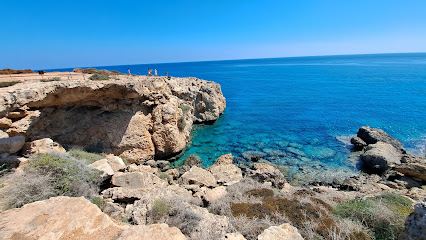
Cape Cavo Greco
Explore the breathtaking landscapes and natural wonders of Cape Cavo Greco, a premier nature preserve in Ayia Napa, Cyprus, perfect for outdoor enthusiasts.
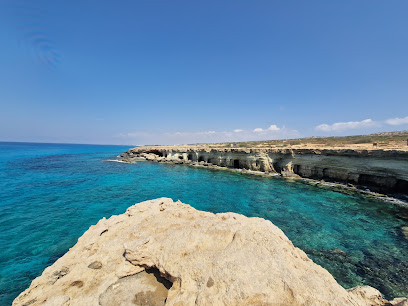
The Lighthouse in Cape Greco
Explore the historic Cape Greco Lighthouse in Cyprus, offering stunning views, maritime history, and natural beauty within a national park.
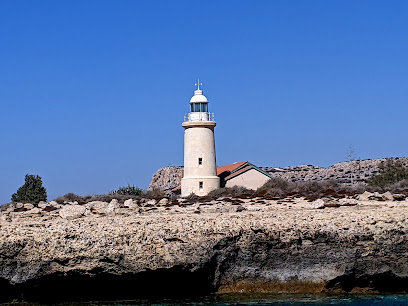
Cavo Greco viewpoint Ayia Napa
Experience stunning views of the Mediterranean at Cavo Greco Viewpoint, a natural gem in Ayia Napa, Cyprus, perfect for nature lovers and photographers alike.
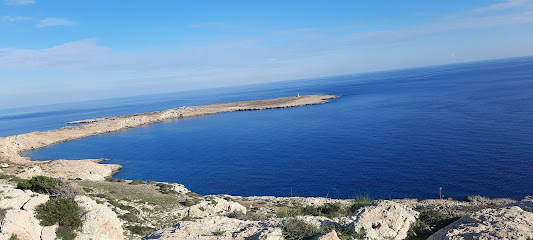
Cape Greco Bench
Pause and admire the stunning Mediterranean views from atop dramatic cliffs at the serene Cape Greco Bench in Cyprus' natural park.
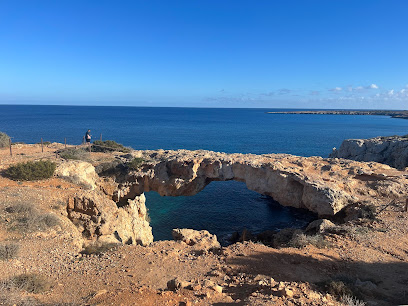
The best view of Cape Greco
Discover the stunning views and natural beauty of Cape Greco, a top hiking destination in Cyprus with breathtaking landscapes and vibrant marine life.
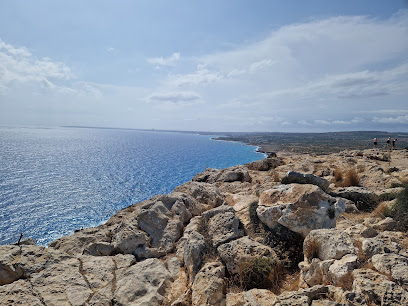
Kavo's View Point
Discover the stunning vistas and serene beauty of Kavo's View Point in Ayia Napa, Cyprus - a breathtaking destination for every traveler.
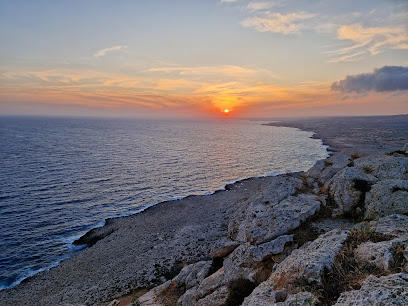
Cape Greco Climbing Crag
Discover the exhilarating climbs and breathtaking views at Cape Greco Climbing Crag, a must-visit destination for outdoor enthusiasts in Ayia Napa, Cyprus.
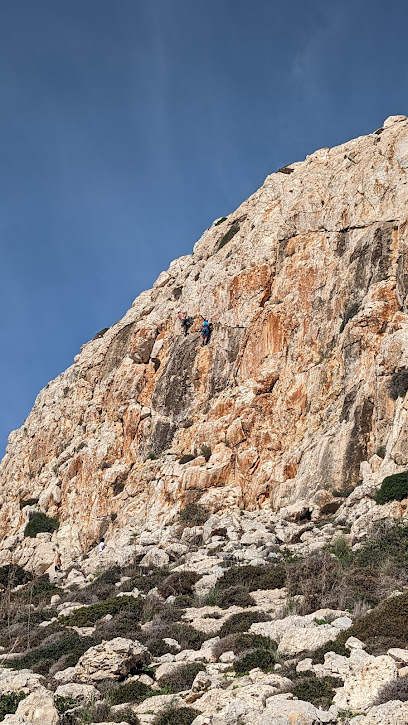
Unmissable attractions to see
Parko Paliatso Luna Park
Experience thrilling rides and family fun at Parko Paliatso Luna Park in Ayia Napa, the largest amusement park in Cyprus, offering unforgettable entertainment for all ages.
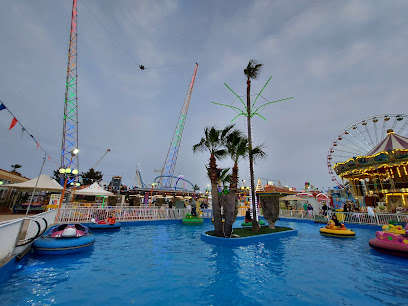
Sea Caves
Experience the breathtaking beauty of the Sea Caves in Ayia Napa, a must-visit natural wonder on your Cypriot adventure.
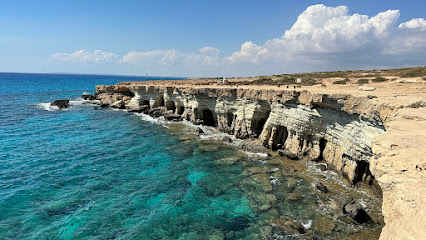
Mackenzie Beach
Experience the vibrant energy of Mackenzie Beach in Larnaca, Cyprus: sun, sea, sand, thrilling water sports, and a lively nightlife await on this beautiful Mediterranean shore.
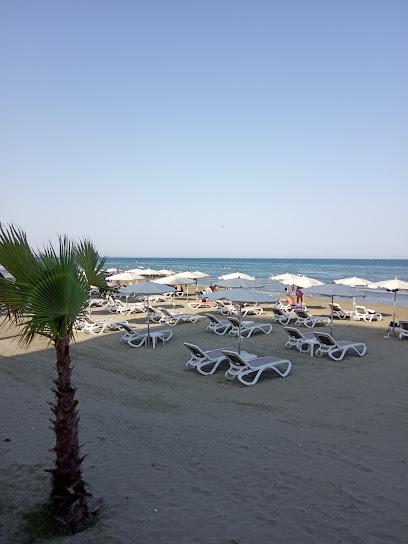
Kastella Beach - Blue Flag
Discover Kastella Beach in Larnaca: A Blue Flag paradise with golden sands, clear waters, and a vibrant atmosphere, perfect for relaxation, family fun, and unforgettable sunsets along the Piale Pasa promenade.
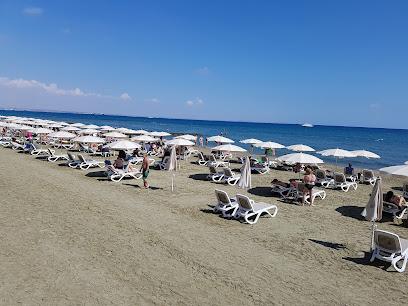
Ayioi Anargiroi Church
Discover the serene beauty of Ayioi Anargiroi Church in Ayia Napa, Cyprus: a cliffside sanctuary offering breathtaking views, rich history, and a unique spiritual experience.
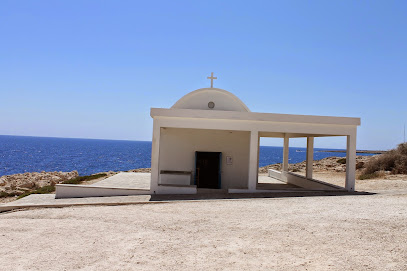
Dolfin's Luna Park (Ayia Napa Harbour)
Experience seaside thrills and family fun at Dolfin's Luna Park in Ayia Napa Harbour, offering a variety of rides, games, and activities for all ages against a stunning Mediterranean backdrop.
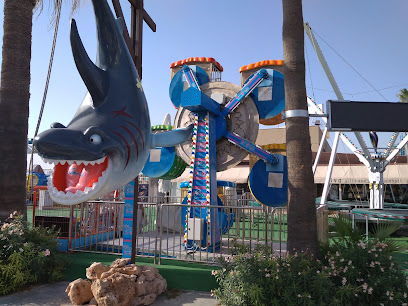
Pierides Museum - Bank of Cyprus Cultural Foundation
Discover the rich archaeological heritage of Cyprus at the Pierides Museum in Larnaca, showcasing ancient artifacts and captivating exhibitions.
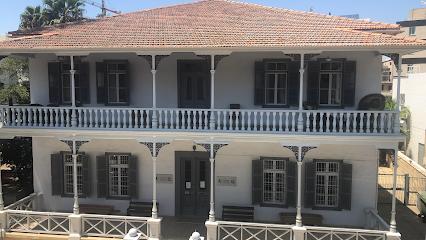
Blue Holes
Discover the mesmerizing Blue Holes of Ayia Napa: a natural wonder offering crystal-clear waters, stunning underwater caves, and breathtaking coastal views for an unforgettable Mediterranean escape.
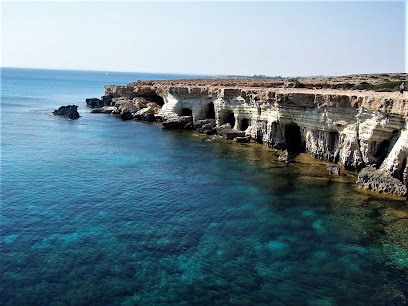
Tower of Rigena
Explore the Tower of Rigena in Perivolia, Cyprus, a medieval watchtower offering panoramic views and a glimpse into the island's rich history and strategic importance.
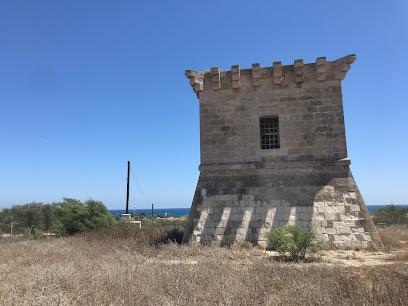
Cave & view point
Discover the allure of Ayia Napa's Cave & View Point: Where dramatic cliffs meet azure waters, offering adventure, tranquility, and breathtaking Mediterranean vistas.
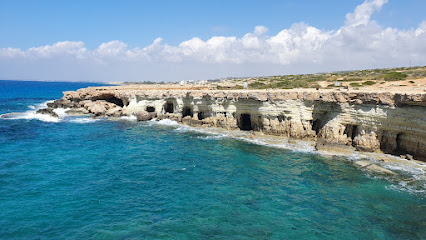
St. Irene
Discover the serene beauty and rich history of St. Irene, a captivating Greek Orthodox church in Perivolia, Cyprus, offering a tranquil escape into the island's spiritual heritage and cultural traditions.
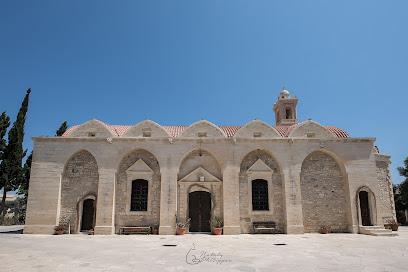
Loumbardi Island
Discover Loumbardi Island, a hidden Cypriot paradise offering pristine beaches, crystal-clear waters, and a tranquil escape into nature near Famagusta.
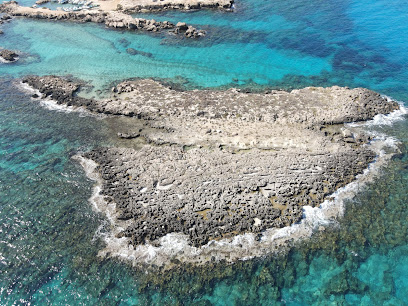
המקום שבו קופצים ולדואק לקח שעתיים להחליט לקפוץ
Experience the thrill of cliff jumping amidst the stunning sea caves and turquoise waters of Cape Greco National Forest Park in Ayia Napa, Cyprus, a haven for adventure and natural beauty.
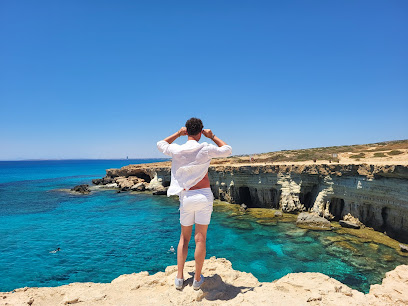
Socha motýla
Discover the enchanting Socha motýla in Ayia Napa, a stunning butterfly sculpture surrounded by lush gardens and captivating views, perfect for nature lovers and photographers.
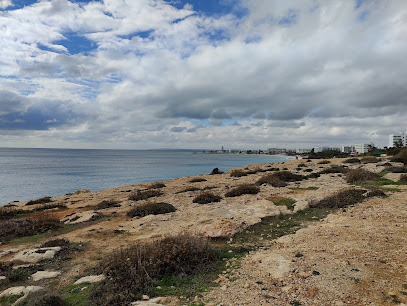
View point Blue Lagoon
Discover the mesmerizing Blue Lagoon in Ayia Napa, Cyprus: crystal-clear waters, stunning coastal views, and unforgettable swimming and snorkeling experiences await in this Mediterranean paradise.
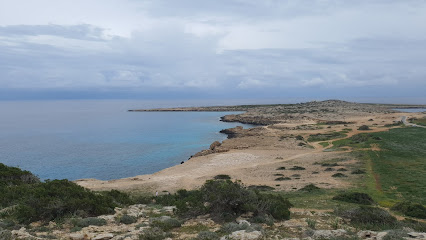
Essential places to dine
Sesoula Kalamaki
Discover authentic Greek cuisine at Sesoula Kalamaki in Ayia Napa – where every dish tells a story of tradition and flavor.
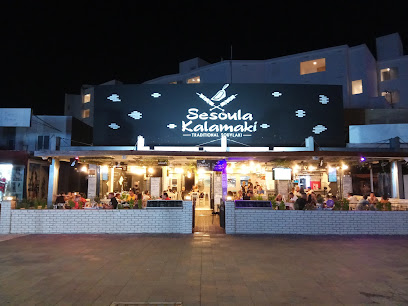
Louis' Sandwich Bar
Discover deliciously crafted sandwiches at Louis' Sandwich Bar in Protaras – where every bite reflects the flavors of Cyprus.
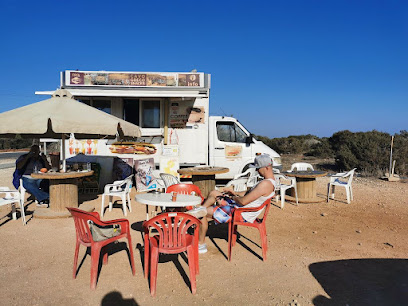
The Deck
Experience fine dining at The Deck in Ayia Napa, where exquisite cuisine meets stunning Mediterranean views for an unforgettable evening.
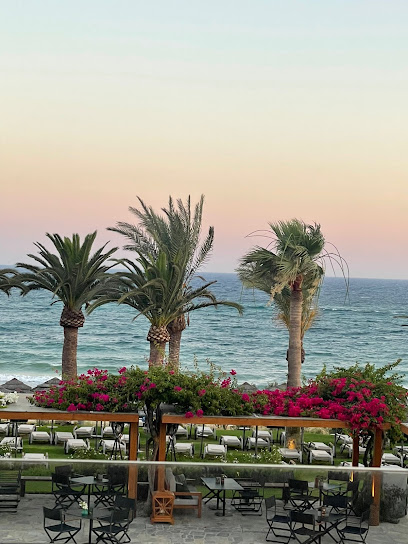
Cavogreco viewpoint Kiosk
Discover stunning coastal views at Cavogreco Viewpoint Kiosk in Ayia Napa – a serene escape into nature's beauty.
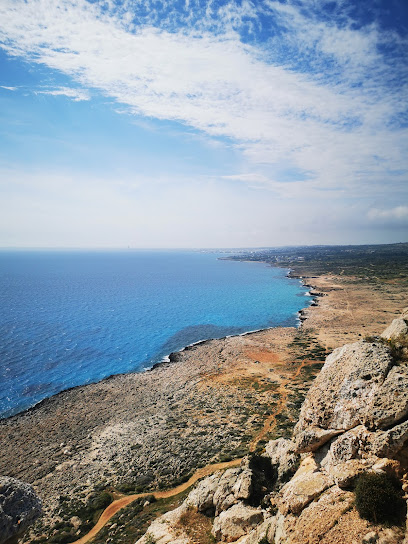
Markets, malls and hidden boutiques
Cavo Greco National Park
Explore Cavo Greco National Park: A stunning coastal haven in Ayia Napa, perfect for nature lovers and adventure seekers alike.
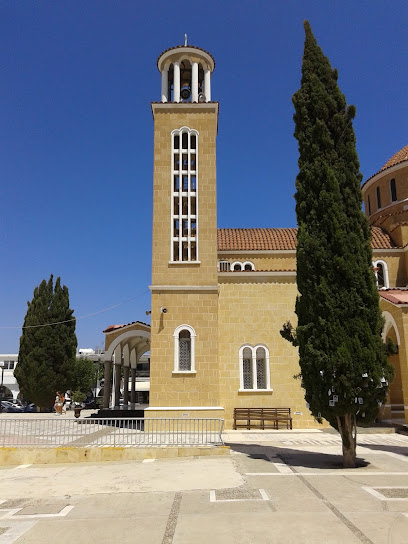
Kavo Gkreko Visitors Centre
Explore the natural beauty and rich biodiversity of Cyprus at the Kavo Gkreko Visitors Centre - your gateway to adventure in Protaras.
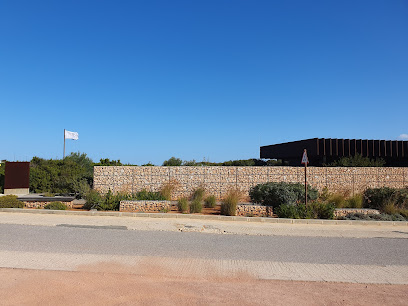
Aphrodite Gift Shop
Explore Aphrodite Gift Shop in Ayia Napa for unique souvenirs and local crafts that embody the spirit of Cyprus.
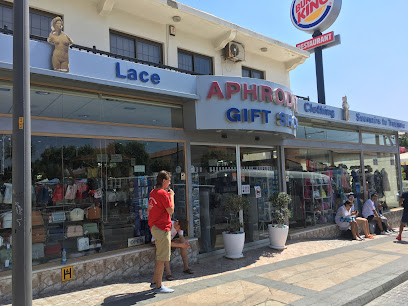
Cape Greco Bench
Discover the stunning views and natural beauty of Cape Greco Bench in Ayia Napa, a must-visit destination for every traveler in Cyprus.
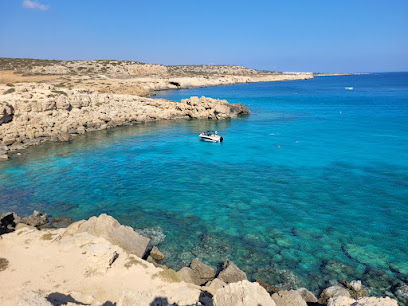
Caves cavo greco
Discover the breathtaking Cavo Greco: Cyprus's iconic sea caves and stunning coastal views await your exploration.
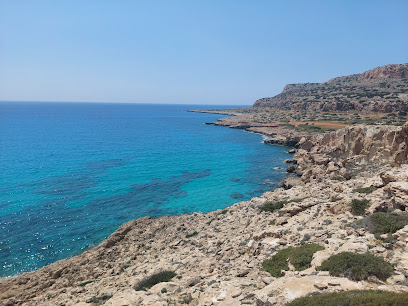
Rossos Supermarket
Discover local flavors and essentials at Rossos Supermarket in Protaras, Cyprus - your one-stop grocery destination.
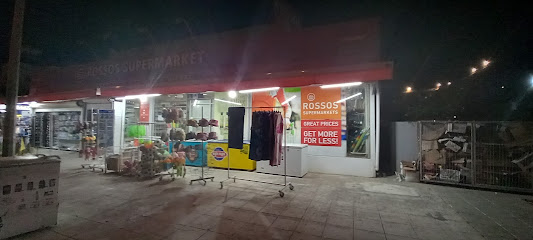
The best view of Cape Greco
Explore the stunning landscapes of Cape Greco, a hiker's paradise with breathtaking views and diverse wildlife in Cyprus.
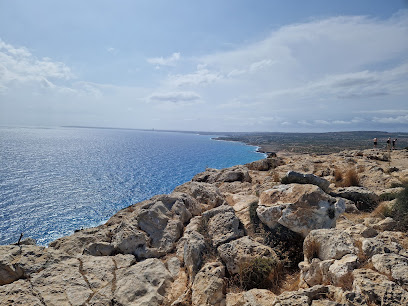
Mesana Supermarket
Discover the ultimate shopping experience at Mesana Supermarket in Protaras, where convenience meets local flavor and variety.
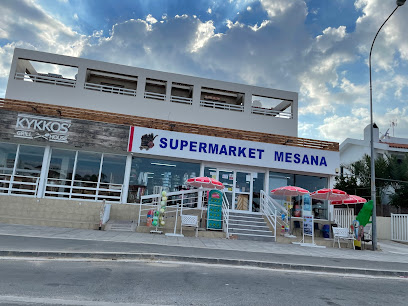
The White Kiosk
Savor delicious sandwiches and snacks at The White Kiosk in Protaras, a perfect spot for casual dining and local flavors.
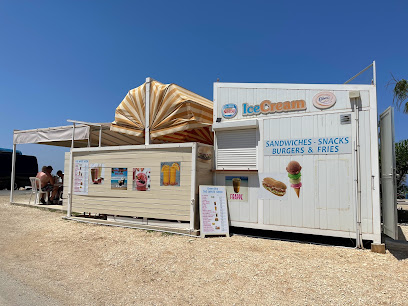
Kavo's View Point
Discover breathtaking views and natural beauty at Kavo's View Point in Ayia Napa, a must-visit destination for every traveler.
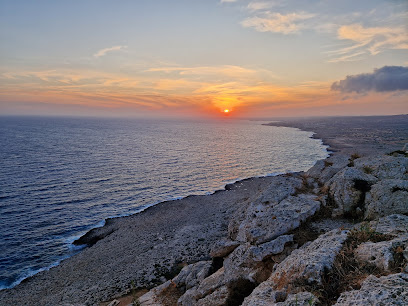
Nico.La market
Explore Nico.La Market in Protaras for a delightful shopping experience with fresh local produce and international goods.
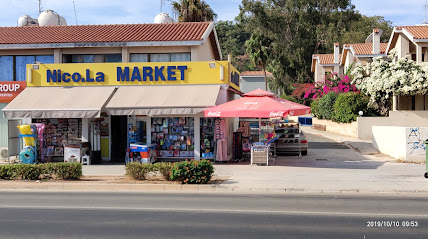
Konnos Bay Supermarket & Souvenir
Discover local flavors and unique souvenirs at Konnos Bay Supermarket & Souvenir in Ayia Napa, a perfect stop for every traveler.
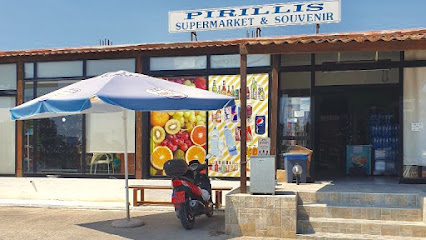
Ssiiooo
Explore Ssiiooo in Protaras for a delightful grocery shopping experience, featuring local delights and international products.
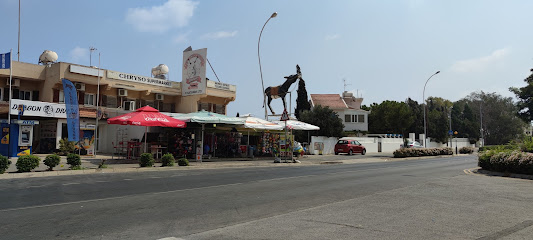
Olive Wood Hand Made
Explore the artistry of Cyprus with unique handmade olive wood souvenirs at Olive Wood Hand Made in Protaras.
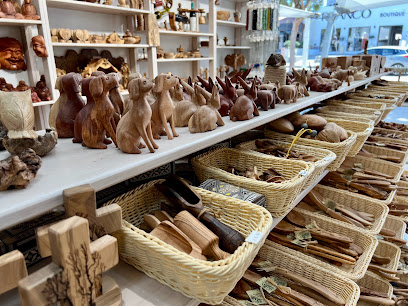
Cape Greco Gazebo
Experience the breathtaking views and rich history at Cape Greco Gazebo, a serene landmark in Ayia Napa, Cyprus.
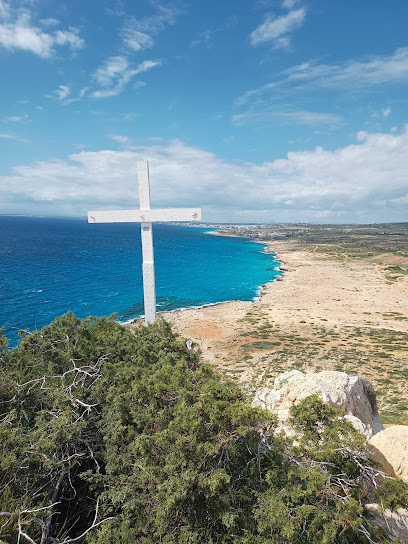
Essential bars & hidden hideouts
Tommy's Pub
Experience the vibrant nightlife and delicious cuisine at Tommy's Pub, a must-visit destination in Agia Napa for tourists and locals alike.
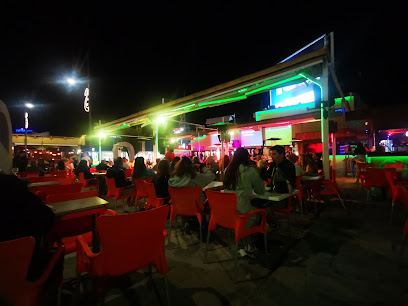
Senior Frog's Ayia Napa
Experience the pulsating nightlife of Ayia Napa at Senior Frog's, where unforgettable memories are crafted with every cocktail and dance.
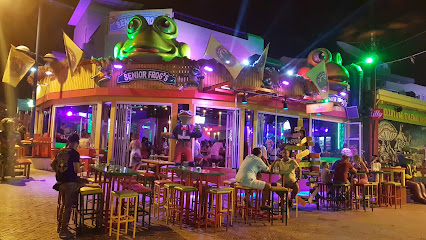
The Square Bar
Experience the vibrant nightlife of Ayia Napa at The Square Bar, where refreshing cocktails and lively entertainment await every evening.
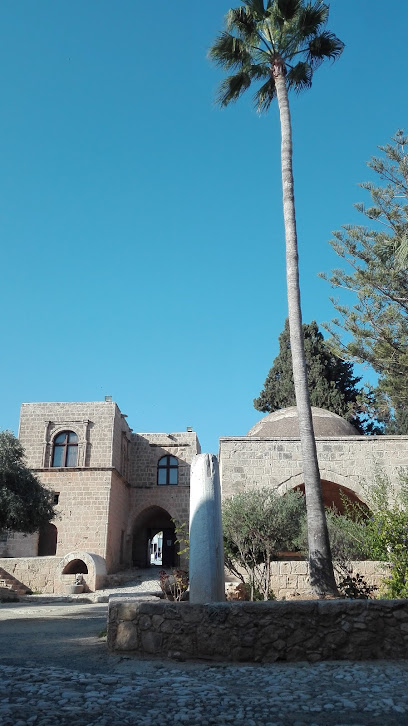
Marcello's Beach Bar, Cafe
Discover the vibrant atmosphere and stunning views at Marcello's Beach Bar and Cafe in Ayia Napa, Cyprus, where relaxation meets delicious dining.
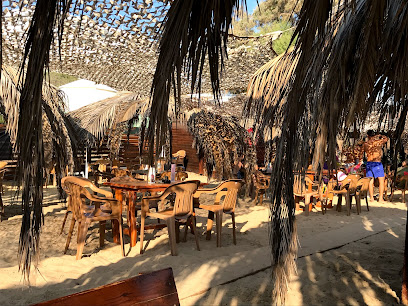
Ambassaden Bar
Discover the vibrant nightlife at Ambassaden Bar in Ayia Napa, where signature cocktails and lively entertainment create an unforgettable atmosphere.
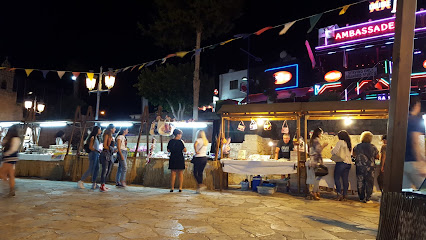
Pepper Bar Lounge
Experience the vibrant nightlife of Ayia Napa at Pepper Bar Lounge, known for its expertly crafted cocktails and lively atmosphere.
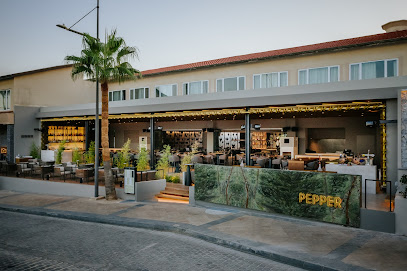
Blue Lagoon Snack-Bar
Experience the Mediterranean charm at Blue Lagoon Snack-Bar in Protaras, Cyprus, where delightful snacks and breathtaking sea views await.
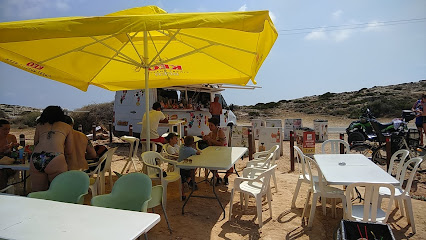
Cliff Bar
Experience breathtaking views and vibrant nightlife at Cliff Bar in Ayia Napa, where every sip comes with stunning ocean vistas.
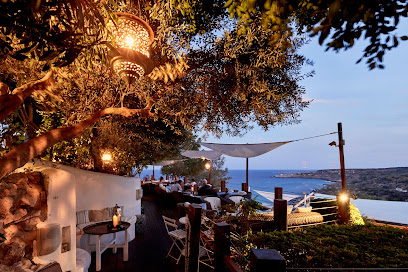
Asylum Rock Bar
Discover the vibrant nightlife at Asylum Rock Bar in Ayia Napa, Cyprus, where great drinks and live music create unforgettable experiences.
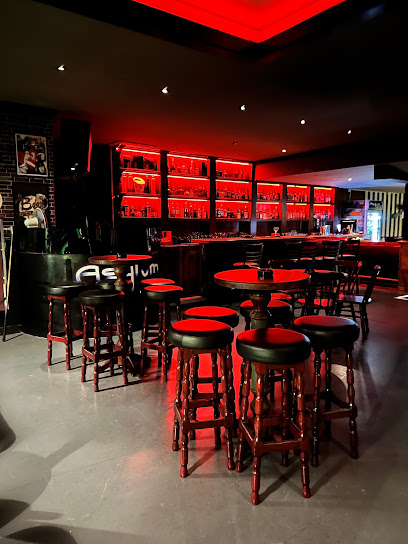
Craig's Bar
Experience the vibrant nightlife of Ayia Napa at Craig's Bar, where cocktails, karaoke, and live music create unforgettable memories.
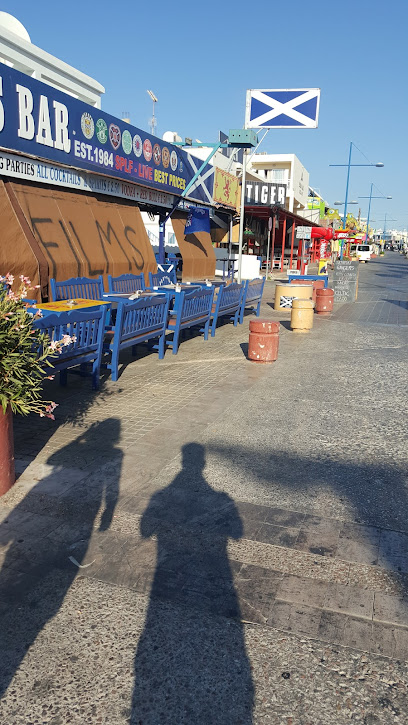
Grabbarna Grus
Join the party at Grabbarna Grus, a vibrant bar in Ayia Napa offering cocktails, music, and a lively atmosphere for an unforgettable night out.
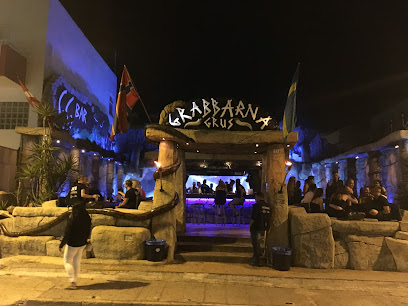
BRONX. Bar
Discover the energy of Ayia Napa at BRONX Bar, where vibrant nightlife, crafted cocktails, and a friendly atmosphere await.
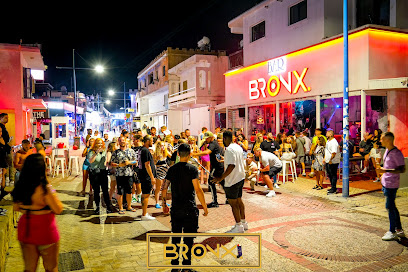
Kimon Bar
Experience the lively nightlife at Kimon Bar in Ayia Napa, Cyprus, featuring signature cocktails and a vibrant atmosphere for unforgettable memories.
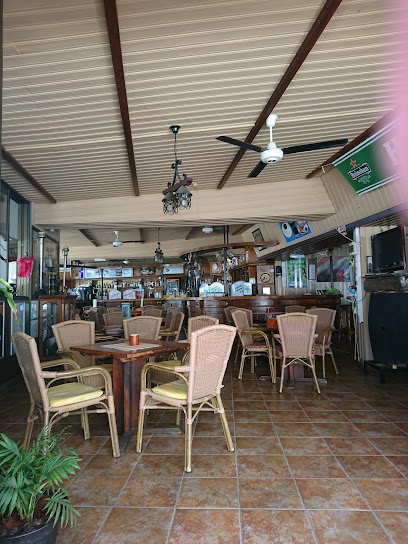
The Vikings Bar (Taffy's)
Dive into the vibrant nightlife at The Vikings Bar in Ayia Napa, where great drinks and lively vibes create unforgettable memories.
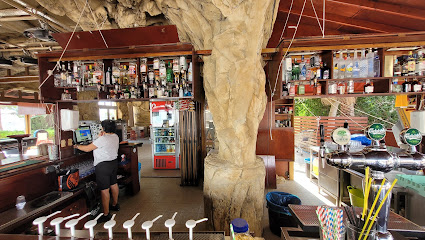
River Rock Cocktail Bar & Shisha Lounge
Experience the vibrant nightlife and exquisite cocktails at River Rock Cocktail Bar & Shisha Lounge in Ayia Napa, Cyprus.
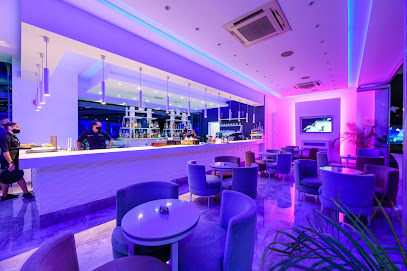
Local Phrases about Cape Greco National Forest Park
-
- HelloΓεια σας
[Ya sas] - GoodbyeΑντίο
[Adio] - YesΝαι
[Ne] - NoΌχι
[Ohi] - Please/You're welcomeΠαρακαλώ
[Parakalo] - Thank youΕυχαριστώ
[Efharisto] - Excuse me/SorryΣυγνώμη
[Signomi] - How are you?Πώς είστε;
[Pos iste?] - Fine. And you?Καλά. Εσείς;
[Kala. Esis?] - Do you speak English?Μιλάτε αγγλικά;
[Milate anglika?] - I don't understandΔεν καταλαβαίνω
[Den katalaveno]
- HelloΓεια σας
-
- I'd like to see the menu, pleaseΘα ήθελα να δω το μενού, παρακαλώ
[Tha ithela na do to menou, parakalo] - I don't eat meatΔεν τρώω κρέας
[Den troo kreas] - Cheers!Υγεία!
[Ygeia!] - I would like to pay, pleaseΘα ήθελα να πληρώσω, παρακαλώ
[Tha ithela na plirosso, parakalo]
- I'd like to see the menu, pleaseΘα ήθελα να δω το μενού, παρακαλώ
-
- Help!Βοήθεια!
[Voithia!] - Go away!Φύγε!
[Fiye!] - Call the Police!Καλέστε την Αστυνομία!
[Kaleste tin Astinomia!] - Call a doctor!Καλέστε γιατρό!
[Kaleste giatro!] - I'm lostΈχω χαθεί
[Eho hathi] - I'm illΕίμαι άρρωστος
[Ime arrostos]
- Help!Βοήθεια!
-
- I'd like to buy...Θα ήθελα να αγοράσω...
[Tha ithela na agoraso...] - I'm just lookingΑπλά κοιτάω
[Apla kitao] - How much is it?Πόσο κοστίζει;
[Poso kostizi?] - That's too expensiveΕίναι πολύ ακριβό
[Ine poli akribo] - Can you lower the price?Μπορείτε να μειώσετε την τιμή;
[Borite na miosete tin timi?]
- I'd like to buy...Θα ήθελα να αγοράσω...
-
- What time is it?Τι ώρα είναι;
[Ti ora ine?] - It's one o'clockΕίναι μία ώρα
[Ine mia ora] - Half past (10)Μισή (10)
[Misi (dekka)] - MorningΠρωί
[Proi] - AfternoonΑπόγευμα
[Apoyevma] - EveningΒράδυ
[Vradi] - YesterdayΧθες
[Hthes] - TodayΣήμερα
[Simera] - TomorrowΑύριο
[Avrio] - 1Ένα
[Ena] - 2Δύο
[Dio] - 3Τρία
[Tria] - 4Τέσσερα
[Tessera] - 5Πέντε
[Pente] - 6Έξι
[Exi] - 7Εφτά
[Efta] - 8Οχτώ
[Ohto] - 9Εννιά
[Ennia] - 10Δέκα
[Deka]
- What time is it?Τι ώρα είναι;
-
- Where's a/the...?Πού είναι ένα/το...;
[Pou ine ena/to...?] - What's the address?Ποια είναι η διεύθυνση;
[Pia ine i diefthinsi?] - Can you show me (on the map)?Μπορείτε να μου δείξετε (στο χάρτη);
[Borite na mou dixete (sto charti)?] - When's the next (bus)?Πότε είναι το επόμενο (λεωφορείο);
[Pote ine to epomeno (leoforeio)?] - A ticket (to ....)Ένα εισιτήριο (για...);
[Ena isitirio (ya...)?]
- Where's a/the...?Πού είναι ένα/το...;
History of Cape Greco National Forest Park
-
Cape Greco's strategic location between the ancient city-states of Salamis and Kition made it an essential area for early settlers. Archaeological findings suggest that the promontory was inhabited as far back as the Neolithic period, with various artifacts such as pottery and tools discovered in the area.
-
Cape Greco is steeped in mythological lore. According to legend, it is one of the locations where Aphrodite, the Greek goddess of love and beauty, emerged from the sea. The cape’s dramatic landscapes and azure waters add to its mystical allure, further enriching its cultural significance.
-
During the medieval period, Cape Greco served as a lookout point for invaders approaching from the sea. The area was also part of the Ottoman Empire from the late 16th century until the British took control in 1878. The influence of these eras is still visible in the architectural remnants and local traditions.
-
The British colonial period left a lasting mark on Cape Greco. The area was used as a military observation post during World War II. Several bunkers and fortifications from this period are still scattered around the park, offering a glimpse into its strategic importance during the war.
-
In the late 20th century, Cape Greco was designated as a national park to preserve its unique flora and fauna. The park is home to several endemic species of plants and animals, making it an essential part of Cyprus's natural heritage. Conservation efforts have been ongoing to maintain the park's biodiversity and protect it from urban development.
-
Cape Greco is not only a place of natural beauty but also a cultural hub. The area hosts several festivals throughout the year, celebrating everything from traditional Cypriot music and dance to international events. These festivals attract both locals and tourists, adding a vibrant cultural dimension to the park.
Cape Greco National Forest Park Essentials
-
Cape Greco National Forest Park is located on the southeastern coast of Cyprus, near the town of Ayia Napa. The nearest international airport is Larnaca International Airport, approximately 50 kilometers away. From Larnaca, you can rent a car, take a taxi, or use a shuttle service to reach the park. The journey typically takes around 45 minutes by road. Alternatively, you can take a bus from Larnaca to Ayia Napa and then a local bus or taxi to Cape Greco.
-
While Cape Greco National Forest Park is best explored on foot or by bicycle, there are several transportation options available. Car rentals are a popular choice for visitors who want to explore the surrounding areas at their own pace. Taxis are readily available and can be a convenient option for shorter trips. Public buses connect Ayia Napa and Protaras to Cape Greco, making it easy to access the park from nearby towns. For a unique experience, consider renting an electric bike or scooter.
-
The official currency in Cyprus is the Euro (EUR). Credit cards are widely accepted in hotels, restaurants, and shops in the nearby towns of Ayia Napa and Protaras. However, it is advisable to carry some cash, especially when visiting smaller establishments or when exploring the park. ATMs are available in Ayia Napa and Protaras, so withdrawing cash is relatively easy.
-
Cape Greco National Forest Park is generally a safe destination for tourists. However, it is important to take standard precautions. Avoid isolated areas after dark and keep an eye on your belongings, especially in crowded places. There are no specific high-crime areas targeting tourists, but it is always best to stay vigilant. Be cautious when swimming or engaging in water activities, as the sea currents can be strong in some areas.
-
In case of an emergency, dial 112 for immediate assistance. This number connects you to police, medical services, and fire departments. It is recommended to have travel insurance that covers medical emergencies. The nearest medical facilities are located in Ayia Napa and Protaras, where you can find hospitals and pharmacies for minor health issues. For urgent medical assistance, head to the Famagusta General Hospital in Paralimni.
-
Fashion: Do dress comfortably and wear appropriate footwear for hiking and exploring the park. Avoid wearing overly revealing clothing, especially in more conservative areas. Religion: Do respect local customs and traditions, particularly when visiting religious sites nearby. Public Transport: Do be polite and respectful when using public transport. Don’t eat or drink on buses. Greetings: Do greet people with a friendly smile and a simple 'hello' or 'kalispera' (good evening). Eating & Drinking: Do try local Cypriot delicacies and accept food offerings graciously. Don’t waste food, as it is considered impolite.
-
To experience Cape Greco National Forest Park like a local, visit early in the morning to enjoy the serene beauty and avoid the crowds. Take a walk along the sea caves and hike up to the Cape Greco Lighthouse for stunning panoramic views. Don't miss a swim at the Blue Lagoon, a popular spot with crystal-clear waters. For a unique experience, join a guided tour to learn about the park's flora and fauna. Engage with locals, as they are often friendly and willing to share stories and tips about the area.
Nearby Cities to Cape Greco National Forest Park
-
Things To Do in Ayia Napa
-
Things To Do in Famagusta
-
Things To Do in Larnaca
-
Things To Do in Nicosia
-
Things To Do in Kyrenia
-
Things To Do in Limassol
-
Things To Do in Troodos
-
Things To Do in Pissouri
-
Things To Do in Polis Chrysochous
-
Things To Do in Paphos
-
Things To Do in Kato Paphos
-
Things To Do in Batroun
-
Things To Do in Byblos
-
Things To Do in Beirut
-
Things To Do in Jounieh









